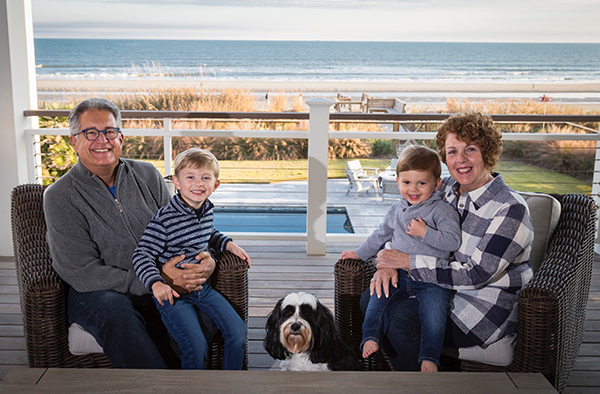Dan Cohen
Dan Cohen’s ancestors in Eastern Europe were farmers who distilled high-quality potato vodka. Because of the Russian pogroms, they fled to western Ohio and in 1924 turned to making red raspberry filling for Dolly Madison Bakery’s jelly rolls.
“My grandfather was the real entrepreneur, but I like to give my great-grandfather credit for helping his son,” Cohen says, making him the fourth generation involved. The backbone of the family’s Cincinnati Preserving Co. became custom-made fruit fillings for a host of companies, including Krispy Kreme Doughnuts, apple fillings for Grandma’s Cookies, and black raspberry filling for Graeter’s Ice Cream.
Cohen’s father joined the company after serving in World War II and was instrumental in modernizing the business and forging a lifetime partnership with Kroger, for which it supplied all the Danish and turnover fillings for its Country Oven Bakery brand. He also began distributing preserves as holiday gifts, sourcing the highest-quality ingredients. They included Michigan Damson plums, handpicked blueberries from Maine, Blenheim apricots from California, and Michigan Montmorency cherries. The fruits were chosen for their color, intense flavor, and texture, bought from small family farms. Dan came on board after becoming dissatisfied with his career as a biophysicist and teacher and persuaded his father the preserves were worth selling.
He had grown up on Clearbrook Drive in a suburb of Cincinnati, which is how the name Clearbrook Farms came about. The preserves were all-natural and packaged in French, reusable canning jars, making them way ahead of the curve in the late 1970s. Their introduction at the Fancy Food Show in 1980 attracted the attention of Dean & Deluca, which carried the label for decades. High-end department stores, Balducci’s, Zabar’s, and Williams-Sonoma were among scores of outlets that popularized the brand.

“We created pepper jellies, fruit butters, spreads, and sauces,” Cohen says. “I only did things I knew we were very capable of, and we grew successfully and slowly. Often companies get into trouble because they do things they shouldn’t do. I never wanted to destroy what the previous generations had been able to do; their lives were so hard and physically demanding.”
As Cohen’s training had been in the biomedical field, he had a steep learning curve. He says he was particularly grateful to the SFA’s friendly and helpful members who guided him along. In the late 1980s, he was voted onto the board of directors and served for 18 years, including as chairman from 2002-2004.
“You build a lifetime of relationships and friendships,” he says. “It’s what I miss the most.” Cohen and his wife Judi’s two daughters did not wish to enter the family business, so Clearbrook Farms was sold in 2015. The brand has since been liquidated, which understandably pains Cohen.
Still, he takes great pride in the family’s legacy. “Our product was so demonstrably different,” he says. “You could taste it and see it in the ingredients. We would never do it any other way.”
